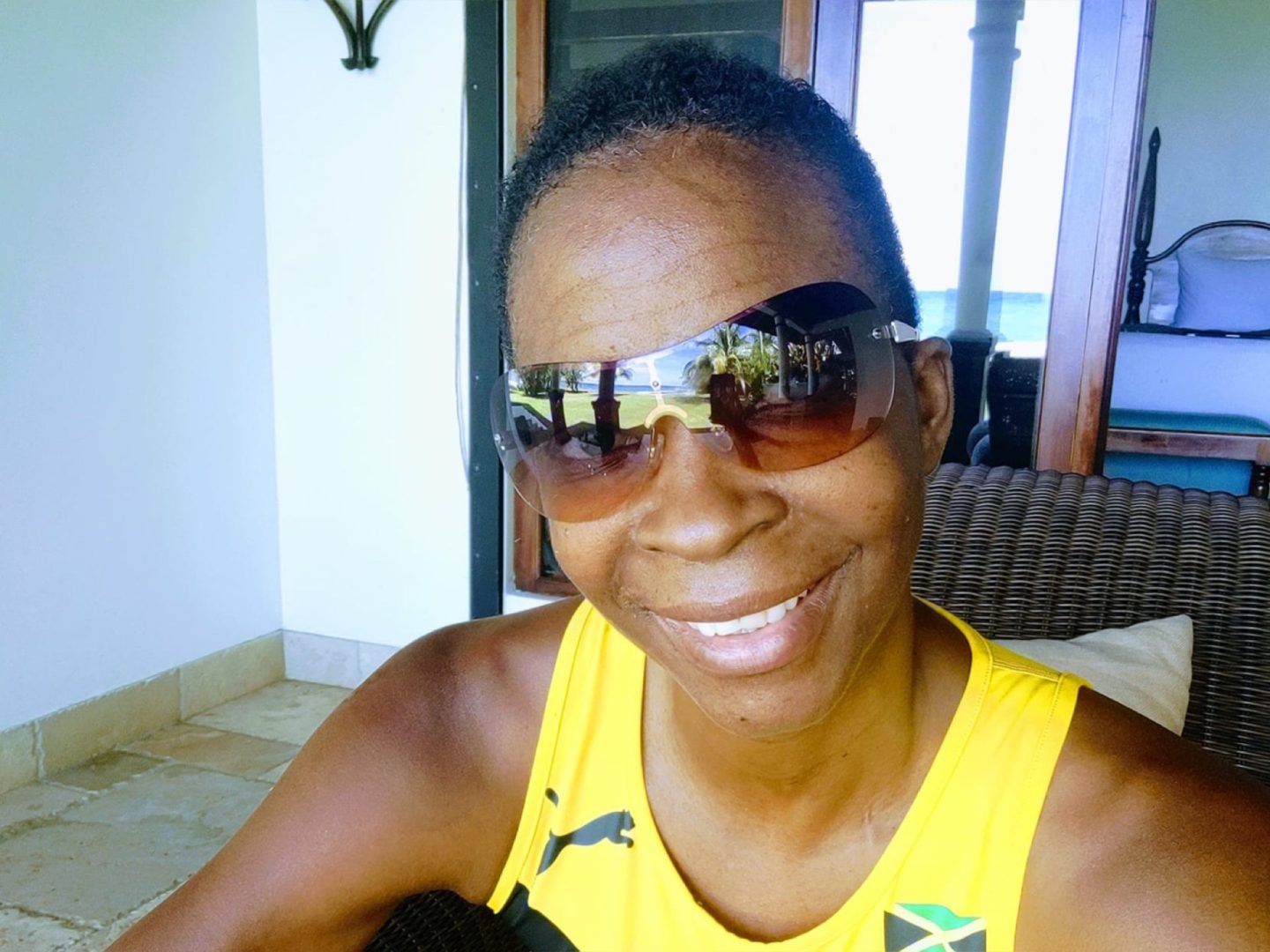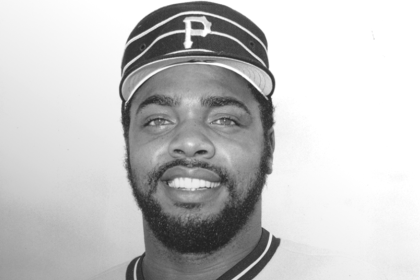
On a mild Saturday morning in September 2015 in a small chapel in Atlanta a crowd of friends, relatives and representatives from the local Jamaica association gathered for the Home Going service for Anthony Winkler. Tony, as he was fondly known by his friends, lived most of his life in America. He was born in Jamaica and lived there through his teenage years before moving to America to further his education. The chapel was full to capacity with an overflow of people standing at the back and in the hallway adjoining the room. No one seems to care too much about not having a place to sit. The mood was very light; it was not the typical solemn funeral type atmosphere. That may in part be due to Toney’s beliefs and his approach on life.
The occasion felt more like a moonlight conversation on the life and times of Tony rather than a sorrowful lamentation on his passing. The chapel erupted in laughter as Adam, his son, explained that his father did not believe in writers block and had his regiments of activity to overcome it. He had this innate sense of determination to fight it and get the job done; no distractions. He developed techniques and strategies to keep his focus in check. As Adam joked, it would not be unusual to find his father locked away in his writing room, sitting in his office chair completely naked as part of his strategy to keep his writing momentum.

He had a stubbornness with his dry humor and approach to things which was years in the making. Unknown to most, this was part of his process it was something that he developed as part of his internal motivation toolset. Adam explained that his father single handedly built two decks around the swimming pool and the only reason that he did this was because at an earlier age Toney’s father told him that he was a shit carpenter. If you told him that he could not do something then that became his challenge and he would go out of his way to prove you wrong.
Adam explained it was somewhat strange but his Dad did not consider himself a writer. It did not come easy. He had to work hard to achieve that recognition. His sentiments were, “you have to write and re-write”, and it’s a painstaking task. It’s tedious to most but he was a wordsmith, who created some mental tools for this purpose and loved the process. His mantra was “One write, ten re-write” and it showed up in the quality of his work. He had what he called his bookshelf test. At the end you’re on your death bed and you look up at you bookshelf and you ask yourself “Did I write this crap for commercial success or would you acknowledge your work and have a broad proud smile on your face.

As a writer, Tony’s deliverance was amazing, publishing at least twelve books and contributing to over another 21 others. As of September 2015 he had six screen plays waiting to be picked up and was in the process of writing a new piece of work. Tony was quintessentially a Jamaican cultural protectorate in his own right. He did things his way and ensured that his presence was felt at his kid’s school events. His daughter Becky explains that her father always wanted to make breakfast on Sunday mornings. Unlike her other school friends who would have the typical American breakfast of sausage and burgers, for her it was strictly Jamaican food. Growing up in America she longed for the typical American breakfast but her father kept it back-a-yard Jamaica to the core.
Tony spent a part of his life in Kingston, as he explained he was not musically inclined but he was in his youth and hung out with the musicians. Kingston was a creative and exciting place during that period and Tony was soaking it all up. He was in the stadium when Princess Margaret made the declaration of Jamaica Independence in 1962. It was a moving moment for him. Some in the audience were shouting “We Free Now”. The atmosphere was electric, even though most people did not fully grasp or understand the full impact of independence from Britain; they were still excited about the moment. There was a build up to this moment with some voices shouting that we-free-now and other voices holding a contrarian view we-not-free the country will go bankrupt soon.
Tony had a friendship and working relationship with Chris Blackwell who started Island Records and is one of founding fathers of the Jamaican music industry. Tony explained that Chris was connected to Bob Marley on a very personal basis. As Bob’s health waned, Chris chartered and paid out of pocket to fly him to Miami for medical treatment. It was at times difficult to clearly hear Tony when he spoke due to the Parkinson disease that was affecting his speech. When he started talking about Bob Marley, Chris Blackwell and his first movie his voice and tone changed. He was more deliberate and slower in the delivery of his words; you could feel the emotional connection in his sentiment.

The yer 1990 brought in a new experience for Tony; after the ten year struggle it took to get his first book “The Painted Canoe” published the first movie from his writing with an all Jamaican cast was in production. His second novel “The Lunatic” was being made into a film. This whole cinematic experience was a daunting eye opener for him. In looking back Tony says that the movie was not screened enough to for it to be impactful as an Emmy selection. He wished he had more promotion time from Paul Campbell, one of the stars of the movie. Tony expressed that in his first jaunt into Hollywood he felt like a fish out of water. Three of Toney’s works were made into movies but he states that he got tired of the back biting aspect of the industry.
Paul Campbell recollection was that Tony was always on set. To date the highest compliment that he’s received from anyone was the letter sent to him by Tony. When asked about the content of the letter Paul quickly rummage through his file, took out a letter and began to read. In the letter Tony express his condolences for the loss of Paul’s mother who had recently passed and went on to express his gratitude for the quality of his work asserting that his delivery was spectacular and his acting career was well on its way. He assured him that his part in a follow-up movie was assured if it was every made. For a young actor this is like the Holy Grail; very empowering. The accolades were welcomed and well received but Paul’s eyes were elsewhere. He was salivating over the lead role in the movie for “The Painted Canoe” the movie for Toney’s first book. The screen writes to this was purchased by Chris Blackwell who wanted the Singer Jimmy Cliff to play the role. Jimmy apparently did not want to take on the role and to date the movie has not been made. Tony expressed some frustration in nothing happening with that screen play as he was emotionally connected to it. It was his biggest work that took ten years to be accepted by a publisher and once published it exploded. His editor Kim Robinson flew in from Jamaica to be at Toney’s home going ceremony in Atlanta. She explained that she had just joined the publishing company in Kingston and everything was a mess in the office. She had not even sorted her space when she had a call asking if she looked at the Anthony Winkler’s manuscripts as yet. She explained that she recently took on the role as editor and will get to it shortly; that was not an acceptable response. For a full week she continues to get a check-in status call. To get rid of the persistence she searched out and found the manuscript and was amazed by what she was reading. That was the beginning of a relationship that lasted to the very end of Toney’s life; it was also the discovery of the book “The Painted Canoe” that changed both Tony and the publisher’s life.

His long standing tennis partner Allen Allberga says Tony was always taking the anti god line in the most direct and evocative way as if to shock the listener. The Rev. Barry Davies, a British expat who lived in Jamaica from 1953 for many years before moving to Atlanta, noted that in all his novels Tony would always reference people’s relationship with god. He was somewhat obsessed with the god factor. A few years back Allan was at the tennis court when Tony fell and could not get up by himself. This was the point where Allen became aware that the Parkinson disease was beginning to adversely affect Toney’s lifestyle and was his last tennis game with Allen.
In one of our conversations, his work as one of the screen writers for the movie “Cool Running’s” came up. This was a movie about a Jamaican bobsleigh team that turned out to be a box office hit. At the outset he reminded me that of the seventeen writers on that project he was the only Jamaican and the only one who lived and grew up in that culture. In some ways he felt that there was a cultural void in the representation of the Jamaican spirit. Let’s not forget that most of his novels are journeys in Jamaican culture. He took a moment to explain that he is the type who would speak up, and this gave rise to challenging conversations during the script readings.
He explained a moment during a script writing they wanted to use a scene where the bobsleigh team would find themselves at the bedside of the Queen at Buckingham Palace. So I said, “Well that’s an ok scene, its humorous”. Toney’s retort was “no, its juvenile a Jamaican will never do that or think that way when it comes to the Queen”. And as if to impugn my acceptance of the initial scene he went on to explain, the movie is meant to represent Jamaican sensibilities, that scene represents American humor and in no way reflects the way Jamaicans sees the Queen. Americans have no understanding of how Jamaicans see’s and relates to the Queen, so it makes no sense to do a scene that may get some laughs but pisses off every Jamaican and create a new stereotype of innate stupidity. He saw this project as a clash of cultures and he knew the lines that kept the move in a place of authenticity. Having lived in America for over thirty years at the time, he felt that his understanding of both cultures was crystal clear. Initially Tony was not given writing credit on the movie. When the writer’s guild made inquiries he told them that he did not want it.
Becky, his daughter, explained that the best lesson she learned from her father was the secret of life, that there is no secret, it’s all made up. He never wore a tie and was impossible to shop for clothes. When her former husband asked her father for her hand in marriage, his response was “What are you asking me for; I’m not going to marry you.” The greatest gift that my Dad gave us was an insane belief in me and my brother; to him when I was chunky I was perfectly proportioned. She explained that while her Dad was never a fan of organized religion he lived his life as love incarnate, feisty, stubborn, and at times argumentative, yet always fierce, tender, true and deep. It is with fond memory that we reflect on what has been left behind by Mr. Anthony Winkler beyond a wife Cathy, daughter Becky and son Adam. His literary work is still very young. –lashley











